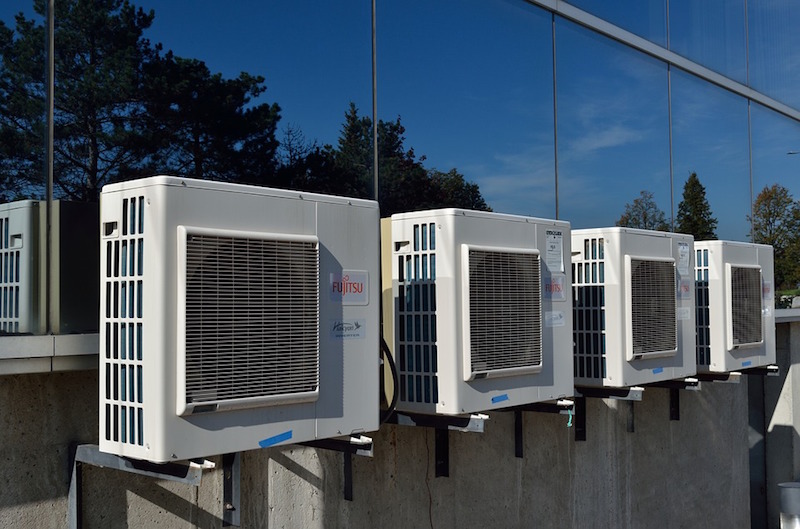Setting the air conditioning too high in an office is not only irresponsible from an energy use standpoint, it also degrades employee productivity.
There is strong data to back that premise. The director of the Human Factors and Ergonomics Laboratory at Cornell University pointed to a study that found offices with temperatures in the low 70s reduced the output of employees and led to increased mistakes.
The study measured the number of keystrokes employees typed in an office. In a 78F environment, workers produced more than twice as many keystrokes as those in a 70-degree environment. Productivity rose along with temperature in a linear fashion into the high 70s. It began to drop when temperatures reached the mid-80s.
The cold is distracting, with people doing things like rubbing their hands together for warmth. This issue may be impacted by the increased popularity of lighter, more casual wear in the office. De facto cooling temperature standards of 68F to 72F were established in the 1960s when business suits were the dominant office attire.
Related Stories
| Nov 23, 2011
Zoning changes proposed to make New York City buildings greener
New York City will introduce new zoning proposals next month that would make it easier for building owners to add features that will make their properties more sustainable.
| Nov 18, 2011
AGC offers webinar on Davis-Bacon compliance
Webinar to be held in two sessions, Dec. 7 and 8 from 2:00-3:30 p.m. EST.
| Nov 18, 2011
New green construction code may help push LEED standards higher
The International Green Construction Code (IgCC) is expected to set a floor for building standards and may create the opportunity for LEED certifications to push toward higher ceilings.
| Nov 18, 2011
New OSHA fall safety rule could save contractors money on insurance premiums
The new Occupational Safety and Health Administration rule requiring employers operating in the residential construction industry to use the same methods of fall protection that historically have been used in the commercial construction industry could save them money.
| Nov 18, 2011
Some believe new Austin building code will help mom and pop shops
Austin, Texas has proposed building codes that require wider sidewalks and call for buildings to be closer to sidewalks along a 3.5-mile stretch of highway.
| Nov 11, 2011
AIA: Engineered Brick + Masonry for Commercial Buildings
Earn 1.0 AIA/CES learning units by studying this article and successfully completing the online exam.
| Nov 10, 2011
WaterSense standard for weather-based irrigation controllers unveiled
The U.S. Environmental Protection Agency’s (EPA) WaterSense program has released a final specification for weather-based irrigation controllers—the first outdoor product category eligible to earn the WaterSense label.
| Nov 10, 2011
Advocate seeks noise reduction measures in California building codes
A former chief building inspector for San Francisco wants to enact building codes that would limit noise levels in restaurants and other spaces open to the public.
| Nov 10, 2011
California seismic codes spur flurry of hospital projects
New seismic requirements in California are helping to drive a flurry of new projects and retrofits in the state’s health care sector.
| Nov 10, 2011
Senate ready to repeal 3% withholding on government contracts
The U.S. Senate is set to approve legislation that would eliminate a law requiring federal, state, and local governments to withhold 3% of their payments to contractors and companies doing business with the government.













